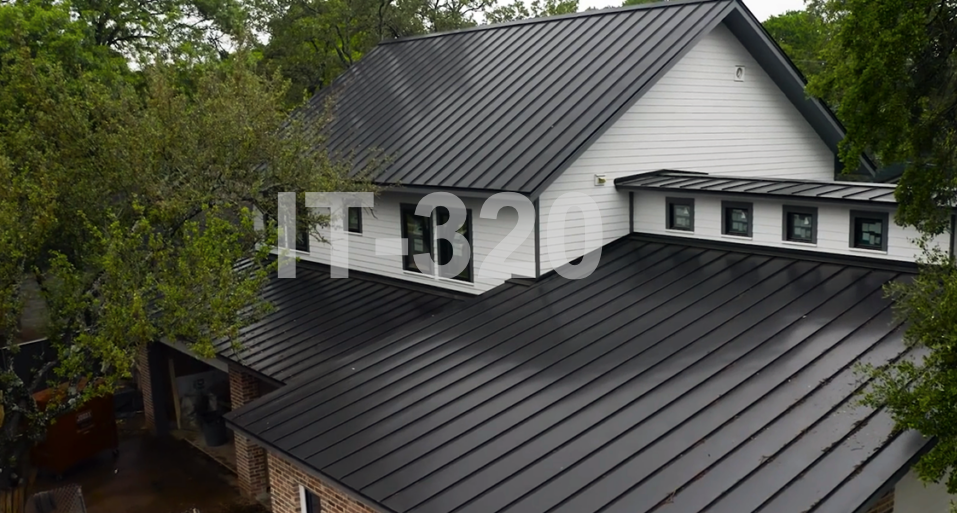Metal Roof vs. Asphalt Shingles: Benefits and Risks Compared
When selecting the right roofing material, homeowners often find themselves deciding between metal roofs and asphalt shingles. These two options dominate the market because of their affordability, durability, and wide availability. Each material has distinct characteristics that make it more or less suitable depending on your home’s location, budget, and design preferences. This post explores the benefits and risks of metal roofs versus asphalt shingles to help you make a confident and informed decision.

Appearance and Style Options
Metal roofs have come a long way in terms of design. Today, they are available in various profiles, colors, and finishes—including options that mimic shingles, slate, or wood shakes. Asphalt shingles are more traditional and also come in a variety of colors and textures, but offer fewer custom looks than metal. If you’re aiming for a sleek, modern appearance or want a roof that mimics high-end materials, metal may offer more versatility. However, asphalt shingles are easier to match with surrounding homes and neighborhood standards.
Durability and Longevity
Metal roofs are known for their exceptional durability and can last 40–70 years depending on the type of metal used. They resist rot, insects, and mildew and can withstand extreme weather like hail and high winds better than asphalt. Asphalt shingles, on the other hand, typically last 15–30 years, making them less durable over the long term. However, higher-end architectural shingles can stretch the lifespan to 30 years or more. While metal has a higher upfront cost, its long life can make it a cost-effective option over time.
Installation and Repairs
Asphalt shingles are easier and faster to install, which lowers labor costs and project timelines. Most roofing contractors are familiar with shingle installations, making it easier to find qualified labor. Metal roofing installation is more complex and requires specialized knowledge and tools, which can raise installation costs. Repairs on asphalt shingles are usually simple and inexpensive, while metal roofing repairs can be trickier and costlier due to panel size and attachment methods. If simplicity and ease of repair are important to you, asphalt has the advantage.
Energy Efficiency and Insulation
Metal roofs reflect sunlight, which helps reduce cooling costs during hot summer months. Many metal roofs are treated with special coatings to enhance their reflective capabilities, making them energy efficient. Asphalt shingles absorb more heat, potentially raising indoor temperatures and energy bills in warm climates. However, adding proper attic ventilation and underlayment can help mitigate this. For energy-conscious homeowners, especially in warm or sunny regions, metal roofing provides a performance edge.
Cost Considerations
Upfront costs for metal roofing are significantly higher than for asphalt shingles. Asphalt remains the most affordable roofing material on the market, making it attractive for budget-conscious homeowners. Metal roofs can cost two to three times more to install, depending on the style and material (steel, aluminum, copper, etc.). However, their lower maintenance needs and longer lifespan can make the investment worthwhile over decades. In the short term, asphalt is less expensive—but metal may win in long-term value.
Weather Resistance and Safety
Metal roofing excels in extreme weather conditions, resisting fire, wind, and hail better than asphalt. It’s also a great choice for snowy regions, as snow slides off easily due to the smooth surface. Asphalt shingles are more vulnerable to wind uplift and may lose granules during hailstorms or temperature fluctuations. They also provide less fire resistance unless treated. For safety and weather resistance, metal roofs clearly come out ahead, especially in areas with harsh climates.
Noise and Comfort
A common concern with metal roofs is noise—particularly during rain or hail. While it can be louder than asphalt, proper insulation and attic padding often reduce sound to barely noticeable levels. Asphalt shingles are naturally more sound-absorbent, making them a quieter option in inclement weather. Some homeowners find the sound of rain on a metal roof charming, while others see it as a drawback. Comfort levels can be managed with the right attic and ceiling insulation regardless of material.
Environmental Impact
Metal roofs are often made from recycled materials and are themselves fully recyclable at the end of their life. This makes them a sustainable option for environmentally minded homeowners. Asphalt shingles are petroleum-based and contribute significantly to landfill waste when replaced. Although some recycling programs exist for asphalt, they are not widely used. When it comes to sustainability, metal roofs offer a much greener footprint.
Resale Value and Home Appeal
A well-installed metal roof can boost your home’s resale value and attract buyers looking for durability and low maintenance. It also adds a modern edge that may appeal to a specific market segment. Asphalt shingles, while standard, do not typically increase resale value but are generally accepted by most buyers. Homes in neighborhoods where asphalt is the norm may not benefit from switching to metal in terms of market appeal. If resale value is a goal, metal roofs can add a premium look that stands out—especially when well maintained.
Final Thoughts
Both metal roofs and asphalt shingles offer strong benefits and notable risks, depending on your goals and circumstances. If you prioritize long-term durability, energy efficiency, and environmental impact—and are willing to invest more upfront—metal is a superior option. For affordability, easy repairs, and traditional appearance, asphalt shingles remain a reliable and popular choice. Weighing your local climate, aesthetic preferences, budget, and how long you plan to stay in your home will guide the right decision. No matter which you choose, ensure proper installation and maintenance to maximize the performance of your roof.